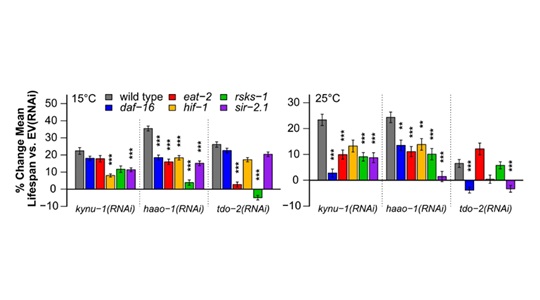Ron Korstanje, Ph.D.
Professor, Evnin Family Chair
Studies the genetics of kidney function and disease, particularly in the context of aging, using genetically diverse mouse models.
Chronic kidney disease (CKD) is a growing medical problem, and the number of patients progressing to end-stage renal disease has increased by 95 percent over the last 10 years in the United States. There are currently over half a million Americans on dialysis, a procedure that severely reduces quality of life and comes with much comorbidity. Furthermore, the impact of CKD is not limited to impairments related to renal failure. CKD is also recognized as an important risk factor for other ailments such as cardiovascular disease, including myocardial infarction, atherosclerosis, stroke and hypertension. A critical and unavoidable contributor to CKD is normal kidney aging.
Our goal is to identify key genetic factors that contribute to the decline of function and damage in the aging kidney, to learn their role in the kidney, and to understand why variations of these factors lead to different outcomes. We do this by studying the natural genetic variation in mice and their association with different kidney phenotypes. Once causal genes are identified, we develop precision disease models for further study of the gene and to develop therapeutics that will slow down the decline of kidney function and development of disease.
Current Grants
P30 AG038070, NIH/NIA The Jackson Laboratory Nathan Shock Center of Excellence in the Basic Biology of Aging
Role: Co-Principal Investigator and Core Leader
T32 AG062409, NIH/NIA Training Program in Precision Genetics of Aging, Alzheimer’s Disease and Related Dementias
Role: Co-Principal Investigator
RO1 ES029916, NIH/NIEHS, Genetic Factors that Influence Arsenic Toxicity
Role: Co-Principal Investigator
Alport Syndrome Foundation, Pharmaceutical Targeting of Alport Syndrome Modifier Genes.
Role: Principal Investigator
Junior Diabetes Research Foundation, Resequencing and functional analyses of two candidate genes contributing to progression to ESRD in Type 1 diabetes
Role: Co-Investigator
-
Bearing down on kidney disease at The Jackson Laboratory
Ron Korstanje, Ph.D., is researching the nephrons of mice, zebrafish, and black bears, in order to find new ways to treat kidney damage and disease. -
UNE Keynote
The UNE Keynote address by Ron Korstanje.
-
Selena Neptune-Bear
Selena Neptune-Bear, JAX Summer Student Class of 2017







